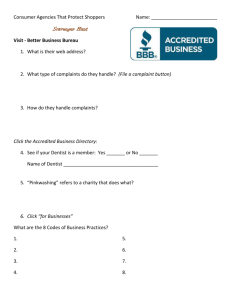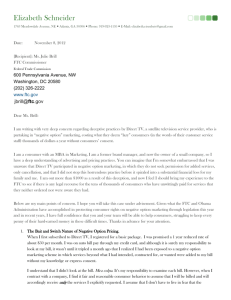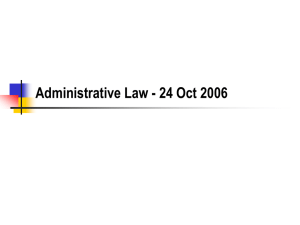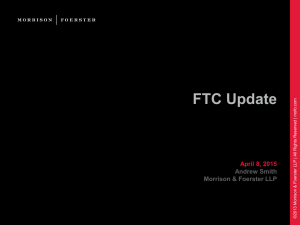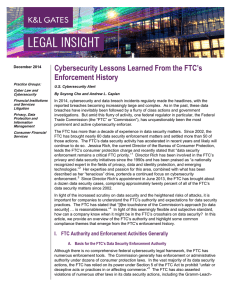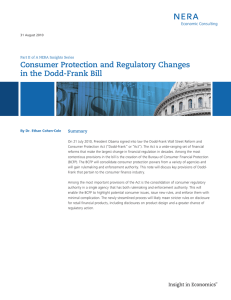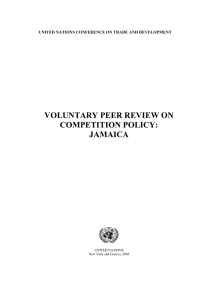Regulatory Analysis and the Independent Agencies J. Howard Beales III
advertisement
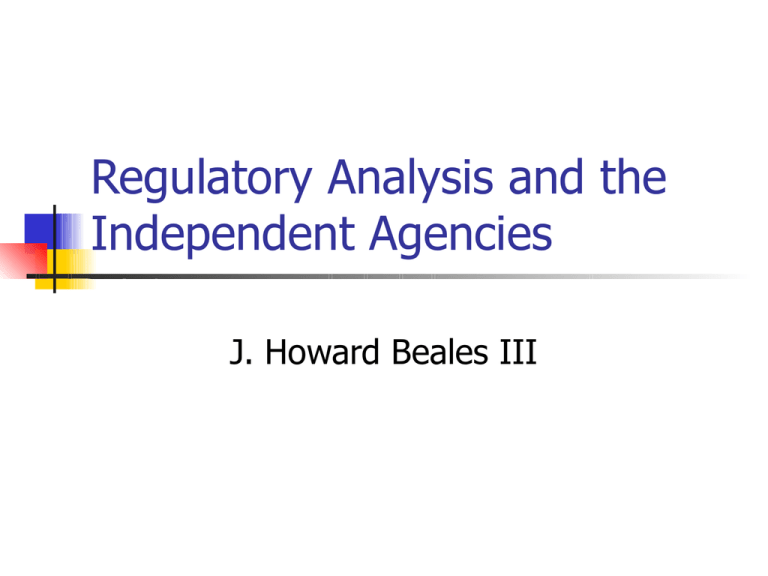
Regulatory Analysis and the Independent Agencies J. Howard Beales III The Role of Economic Analysis At least as vital at the independent regulatory agencies as anywhere else. Formal Regulatory Impact Analysis requirements are a means to an end. Independent Agencies -- FTC Mostly case by case enforcement At its best as a common law agency evolving legal principles to address emerging problems E.g., privacy, information security FTC Statutory Authority Unfair or deceptive acts or practices. Unfair: Causes or is likely to cause substantial consumer injury Without offsetting benefits to consumers or competition That consumers cannot reasonably avoid. Basically a cost benefit test. FTC Statutory Authority Deceptive if: Representation or omission is likely to mislead Consumers acting reasonably in the circumstances About a material issue (likely to affect choices). A subset of unfair practices with a streamlined test because it is rarely beneficial. Case by Case Enforcement Establishes clear legal rules over time. Economic analysis is vital, but little role for RIAs. Depends on agency appointees who are interested in the economic analysis. Also vital to developing effective enforcement strategies. Current problems in privacy, level of evidence required to support advertising claims. Principles developed through cases are important at other agencies as well. FTC Rulemaking Procedures More elaborate than typical APA rulemaking. ANPRM required Presiding Officer Initial comments, designated factual issues Opportunity for cross examination Rebuttal comments Staff Report, and separate Presiding Officer Report, and another opportunity for public comment Commission Decision FTC Rulemaking Results Slower and more deliberate process. In practice, only used where there is a reasonably strong consensus. Recent Business Opportunity Rulemaking Other FTC Rulemaking Some rules implementing specific statutes under APA procedures. E.g., Telemarketing Sales Rule, including the Do Not Call Registry. FTC asked for APA rulemaking in all rules, but Congress declined. Limits of a Formal RIA Consumer protection benefits frequently depend on behavioral responses for which there is little reliable data. E.g., responses to disclosures of information.

